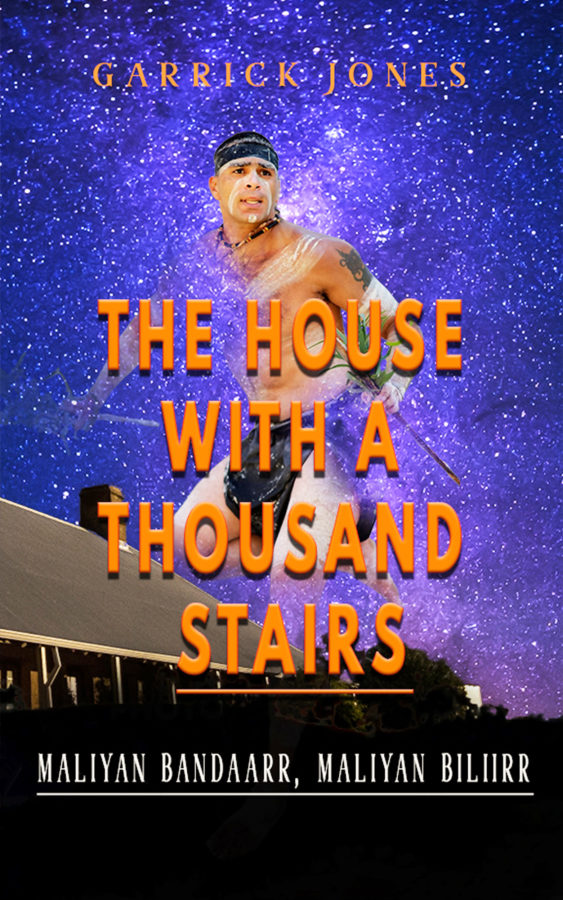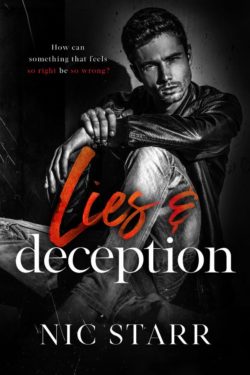by
Warrambool
In Gamilaraay, the language of the Kamilaroi peoples of north-western New South Wales, it's the word for The Milky Way. It's also the name of Peter Dixon's homestead and sheep station, situated in the lee of the Liverpool Ranges.
In 1947, Peter returns from war, his parents and younger brother dead, the property de-stocked and his older brother, Ron, having emptied out the family bank account and nowhere to be found.
The House With a Thousand Stairs is the story of a young man, scarred both on the inside and the outside, trying to re-establish what once was a prosperous and thriving sheep station with the help of his neighbours and his childhood friend, Frank Hunter, the local Indigenous policeman.
Enveloped by the world of Indigenous spirituality, the Kamilaroi system of animal guides and totems, Peter and Frank discover the true nature of their predestined friendship, one defined by the stars, the ancestral spirits, and Baiame, the Creator God and Sky Father of The Dreaming.
Maliyan bandaarr, maliyan biliirr.
Publisher: Moshpit Publications
Editors:
Cover Artists:
Genres:
Pairings: M-M
Heat Level: 2
Romantic Content: 1
Ending: Click here to reveal
Character Identities: Gay
Protagonist 1 Age: 26-35
Protagonist 2 Age: 26-35
Tropes: Friends to Lovers
Word Count: 115000
Setting: Post WW2 outback Australia
Frank's shack was simply that, a slab hut with a chimney in the middle of the bush. When Peter arrived, Frank was sitting on a blanket he'd laid out, half a dozen feet away from the glowing coals of a small fire he'd built in the clearing behind the house. Frank told him that after he'd left him at the pub, he'd driven back to Warrambool Station to pick some peppercorn leaves from the two trees at the front of the house, so there was something of Peter's Country in the smoke.
"You drove all that way?"
"I could see the look in your eye when you saw me talking to those two nags outside the pub. When I left you, I knew you'd have your horses on your mind, so I had a quick squiz while I was at your place."
"How were they?"
"Oh, the fillies said I was to tell you they missed you, and the young fella said to tell you that you were a neglectful bastard for leaving him alone all night."
READ MOREPeter laughed and then put his arm around Frank's shoulder. "What do you want me to do, mate?" he asked.
Frank wound a folded strip of black cloth over his forehead and tied it at the back of his head. "You had your welcome back from your mates in the pub, now it's time to purify your spirit, Peter Dixon, and to welcome you home to Country at the same time. Let's get you sorted, eh? Sit down there on the blanket, wanda."
The rite was particularly simple. Frank threw handfuls of three different leaves, quickly doused in a bucket of water, onto the glowing coals. They sat side by side, wafting the smoke over their faces, passing their palms up through the smoke and then beside their ears, twisting their hands to funnel it over and around their heads. They finished by pressing their foreheads together.
Peter allowed Frank to take his clothes off for him and then rolled onto his stomach on the blanket. He watched from the corner of his eye as Frank rubbed the dark ointment between his hands and then began to spread it with his palms down the length of Peter's spine. His friend's hands on his back made him sigh with contentment. Lying there, with the lingering aromatic smell of smoke, and the fragrance arising from the balm, he could have fallen through the blanket and allowed himself to be swallowed up in the land. It was a wonderful feeling.
"My turn," Frank eventually said, placing the jar on the blanket an inch in front of Peter's fingertips.
It was only when Peter sat up and then dipped two fingers into the ointment he became nervous. He lifted his eyes from the ground, which he'd been studying assiduously for no other reason than to avoid watching Frank remove his shirt and shuck off his trousers.
The scar started below the waistband of Frank's skivvies. Peter put the jar down and then stood, reached out, and slowly ran his oiled fingers over the deep rift that flowed across Frank's stomach and under his arm. It finished beneath his shoulder blade. He'd never known his fingers to be so light, nor so tender; his hand seemed to glide over Frank's skin, barely touching it. Every tiny hair bristled, sending electric waves up through his fingertips and then onwards, coursing through his body.
"Fan the fire and throw some more leaves on, Pete," Frank said with a small chuckle. "Look what you did to me." He ran his hand over his upper arm, which was covered in goose bumps.
Peter did as he was told while glancing at Frank, who'd stretched out on his stomach, watching every move he made. He blew on the coals and then dampened a few more bundles of leaves in the bucket before shaking them and then throwing them on the fire. He fanned the smoke towards Frank, grinning.
Frank laughed and pretended to cough.
"On your side, thagaan-di," Peter whispered, moving from the fire and kneeling on the blanket next to Frank. The smoking ceremony performed, Peter knew he had the right to call his friend my older brother in Language. Whatever Dreaming it was they shared, it bound them in the eyes of Frank's mother and therefore her mob—and although he knew he'd maybe never learn Frank's totem, according to custom they were brothers. Brothers of different skins, but brothers just the same.
As Frank snuggled onto his side, Peter carefully drew down his friend's skivvies over his left hip. Peter's first impression was the scar looked like a snake, weaving its way across Frank's olive skin. It parted the hair under his navel as it meandered upwards, following the line under his pectoral muscle before disappearing out of sight under his armpit. How Peter longed to lean over and kiss it better, from the start of its tail near the hipbone, right around to the middle of Frank's back.
He remembered what his mother had often said when she was tucking him into bed, after she'd discovered them playing together in the sandpit during the day, or tossing marbles into her gravel path from the family's third stair, "Love Frank, Peter, like he loves you. Everyone needs friends to love and to take care of each other. There's no shame in men loving other men, sweetheart. Look at your daddy, and your uncle Reg, and Mr. Sparrow. Those men are as close as any human beings can be."
He rubbed some more ointment between his hands and began a smooth, rhythmic kneading of Frank's hipbone, right where the scar started.
"I love you, Frank," he said, his voice a mere whisper. "I always did, you know."
"I know, Pete."
That's all it was. The exchange of a few sentences. Nothing else needed to be said.
Peter didn't know what sort of love he felt now he was grown up, but an hour later, curled up behind Frank, in front of the fire, his arms around him, Peter kissed him on the top of the head, squeezed him gently, and then closed his eyes, just for a few minutes.
COLLAPSEGarrick Jones has made me fall in love with Australia—a place I may or may not ever see. His marvelous “Australia’s Son” took me to late Victorian Sydney by way of a murder mystery that pulled a famous opera singer into a maelstrom of confusion and danger. “The House With a Thousand Stairs” jumps a half-century later, into the outback of New South Wales in the aftermath of World War II. It is brilliant and emotionally overwhelming at times, a love song for rural Australia and its big-hearted people.
The book opens with Peter Dixon, sitting on the dusty verandah of his family’s abandoned and shuttered house at Waarambool Station, which was his parents’ sheep ranch (an American term—not used in Australia). It is a scene of sadness and defeat, expressing Peter’s despair at the losses he has suffered, not only in the war, but back at home, where the life he remembers seems to have died.
This is the story of Waarambool (the Kamilaroi word for Milky Way) gradually coming back to life, and with it the revitalization of Peter’s own existence. The three main ingredients in this remarkably rich narrative are the land, the animals, and the people. With a scarred body and a broken heart, Peter turns to the land first for comfort, trying to salvage what is left of the beautiful house and landscape of his memories. Then his neighbors—people from the neighboring properties and town, who knew him as a boy and loved his parents—begin to appear, offering welcome and assistance. Then he discovers that Frank Hunter is back in town, working as a constable. Frank was his closest friend as a child, the son of a white sheep rancher and his Aboriginal common-law wife. Frank was separated from Peter when his mother’s people, the Kamilaroi, left their ancestral land, driven away by white violence and colonization. As Peter reestablishes his relationships with the people of his hometown, he and Frank begin to reconnect with the love they shared in childhood.
The animals—both farm and wild—play both metaphoric and real-life roles in this drama, bringing the land alive in a way that people alone cannot. People Peter remembers from his past life matter—but so do people he met during his years away at war. Frank is singular in his importance to Peter, and their story as lifelong friends and ultimately as a couple winds its way throughout the book. The deeply rooted cultural racism in Australia—chillingly parallel to America’s mistreatment of both Native Americans and enslaved Africans—it a constant theme, linked to Peter’s sexuality, thus making him an outcast of sorts as well.
Oddly, this is not a romantic book so much as an emotionally powerful book, the warm uplift of the narrative arc spiked with moments, usually from the past, of horrific brutality. There is lots of love here—people loving other people simply because they need it to heal their wounds, physical and psychological. The author’s deft way with story-telling allows him to bring quite contemporary notions of justice and compassion into the 1940s setting without any sense of anachronism. The World War has pulled the scales from the eyes of the people who suffered through it. It not only works, but it helps drive the narrative forward in a way that has the pull of inevitability.
A beautiful paean to the goodness of humanity, this book is a gift at a time when many of us—especially Americans—need one.
Also available as an eBook from all online retailers







